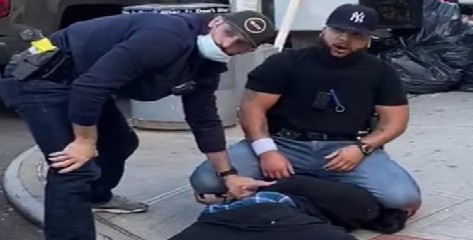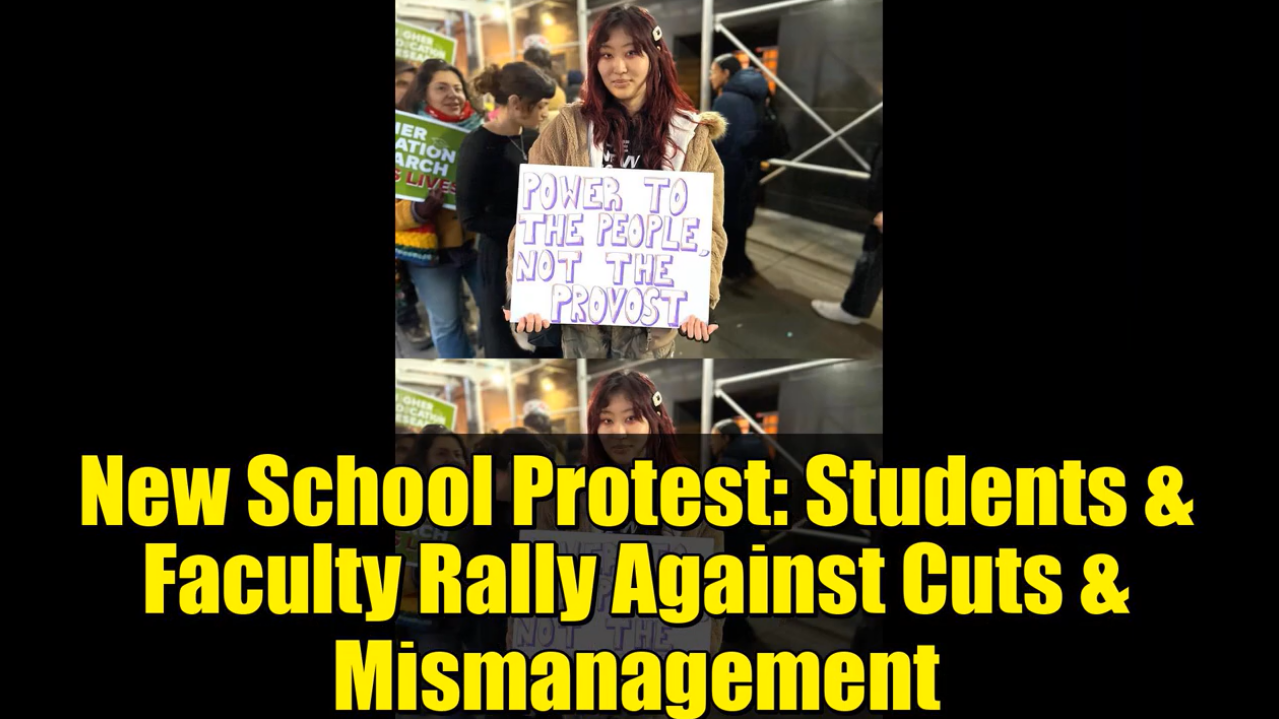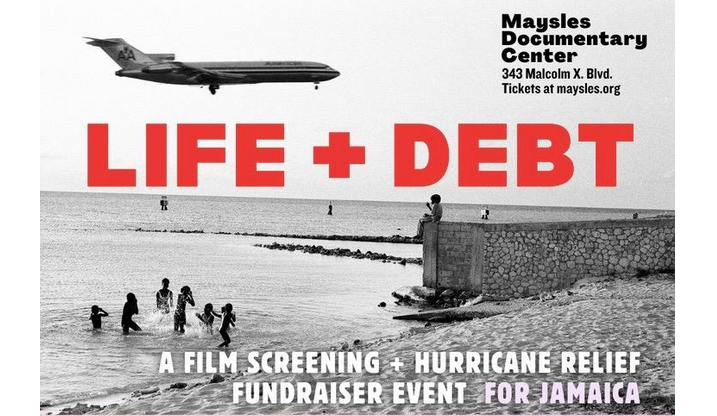[NYPD\United States District Court]
Corey Stoughton: “This ruling is a missed opportunity to bring much-needed accountability for the NYPD’s enforcement of social distancing rules disproportionately against Black and Latinx New Yorkers.”
Photo: YouTube
New York’s Southern District Court recently ruled against plaintiffs seeking an investigation into the NYPD’s abuse of Blacks and Latinos during George Floyd protests and their discriminatory enforcement of COVID-19 social distancing.
This week, the United States District Court for the Southern District of New York issued a ruling regarding an emergency motion and supplemental submission filed by the Center for Constitutional Rights, the law firm of Beldock, Levine, & Hoffman, the NAACP Legal Defense and Educational Fund, Inc. (LDF), and The Legal Aid Society.
These measures sought immediate court action in response to the New York City Police Department (NYPD)’s violation of prior court orders prohibiting racial discrimination against Black and Latinx New Yorkers. The court’s decision permits the NYPD to continue discriminatory enforcement of social distancing orders unabated, which has been widely criticized.
The original emergency motion requested that the court-appointed monitor conduct an investigation into the NYPD’s social distancing enforcement practices and impose a temporary moratorium on the department’s enforcement of social distancing directives pending the outcome of this investigation. The supplemental submission to this motion requested that the monitor also launch an investigation into the department’s enforcement of a curfew in New York City that was imposed from June 1-6, 2020. The court denied these requests.
The motion and supplemental submission were filed by the attorneys representing the plaintiffs in two of the three landmark class action lawsuits, Floyd v. City of New York and Davis v. City of New York, that challenged the NYPD’s stop-and-frisk and trespass enforcement practices as racially discriminatory and unconstitutional and are currently part of the court-ordered monitoring of the NYPD. The lawyers argued that the NYPD’s discriminatory enforcement of social distancing protocols and of New York City’s former curfew violated court orders in these two cases.
As part of their requested investigations, the attorneys asked for plaintiffs’ access to documents, data, and information concerning the NYPD’s social distancing and curfew enforcement practices. Lawyers for the third class-action lawsuit in the court-ordered monitoring, Ligon v. City of New York, also made a separate filing supporting the Floyd and Davis plaintiffs’ emergency requests.
Plaintiffs presented evidence, including a study by The Legal Aid Society, showing that 18 of the 20 precincts with the highest rates of known COVID-19 related arrests or summonses per 10,000 people occurred in majority Black or Latinx precincts. That racialized data resembled the 88 percent rate of discriminatory stop and frisks the court found unconstitutional and part of a systematic pattern of racial profiling.
The court’s ruling comes shortly after a wave of unprecedented local, national, and global protests against police violence against Black people, including against the NYPD’s legacy of anti-Black violence and law enforcement. Even though the court acknowledged that some of the social distancing enforcement looks very much like the racially discriminatory conduct outlawed in the Floyd, Ligon, and Davis rulings, the court declined to review these practices in part because plaintiffs also presented evidence of racialized police violence that the court found to not be covered by the Floyd orders.
“We are disappointed that when faced with evidence of racially discriminatory and violent police behavior that it acknowledged was covered by its prior orders in this case, the court chose to take no action to stop it,” said Darius Charney, Senior Staff Attorney at the Center for Constitutional Rights and counsel for the Floyd plaintiffs. “As the overwhelming protests of the past weeks have shown, the public fully understands that NYPD impunity — and the corresponding abuses of Black and Latinx people — must end, and we will continue to fight alongside those communities that seek to end over-policing and racist policing in New York City.”
“This ruling is profoundly disappointing. The NYPD was already found to have intentionally discriminated against communities of color, and the court was confronted with substantial evidence that this discrimination continued with the NYPD’s deeply troubling social distancing and curfew enforcement practices,” said Jin Hee Lee, LDF’s Senior Deputy Director of Litigation. “Failing to hold the NYPD accountable for its mistreatment of Black and Latinx New Yorkers, who are already disproportionately suffering from the traumatic harms of this pandemic, is especially disheartening amid nationwide protests demanding comprehensive reforms to racially discriminatory policing.”
“This ruling is a missed opportunity to bring much-needed accountability for the NYPD’s enforcement of social distancing rules disproportionately against Black and Latinx New Yorkers, despite hard evidence that violations of those rules are committed by white New Yorkers at equal rates,” said Corey Stoughton, Attorney-in-Charge of the Special Litigation Unit with the Criminal Defense Practice at The Legal Aid Society. “We stand with our clients who not only have experienced discriminatory enforcement of these rules but also have suffered disproportionately from the COVID-19 virus, and will continue to pursue every available opportunity to ensure that Commissioner Shea and Mayor de Blasio do not escape responsibility for these unlawful and indefensible acts.”
Founded in 1940, the NAACP Legal Defense and Educational Fund, Inc. (LDF) is the nation’s first civil and human rights law organization. LDF has been completely separate from the National Association for the Advancement of Colored People (NAACP) since 1957—although LDF was originally founded by the NAACP and shares its commitment to equal rights. LDF’s Thurgood Marshall Institute is a multi-disciplinary and collaborative hub within LDF that launches targeted campaigns and undertakes innovative research to shape the civil rights narrative. In media attributions, please refer to us as the NAACP Legal Defense Fund or LDF. Follow LDF on Twitter, Instagram and Facebook.
The Center for Constitutional Rights works with communities under threat to fight for justice and liberation through litigation, advocacy, and strategic communications. Since 1966, the Center for Constitutional Rights has taken on oppressive systems of power, including structural racism, gender oppression, economic inequity, and governmental overreach. Learn more at ccrjustice.org. Follow the Center for Constitutional Rights on social media: Center for Constitutional Rights on Facebook, @theCCR on Twitter, and ccrjustice.org on Instagram. The Legal Aid Society exists for one simple yet powerful reason: to ensure that New Yorkers are not denied their right to equal justice because of poverty. For over 140 years, we have protected, defended, and advocated for those who have struggled in silence for far too long. Every day, in every borough, The Legal Aid Society changes the lives of our clients and helps improve our communities. www.legalaidnyc. org







